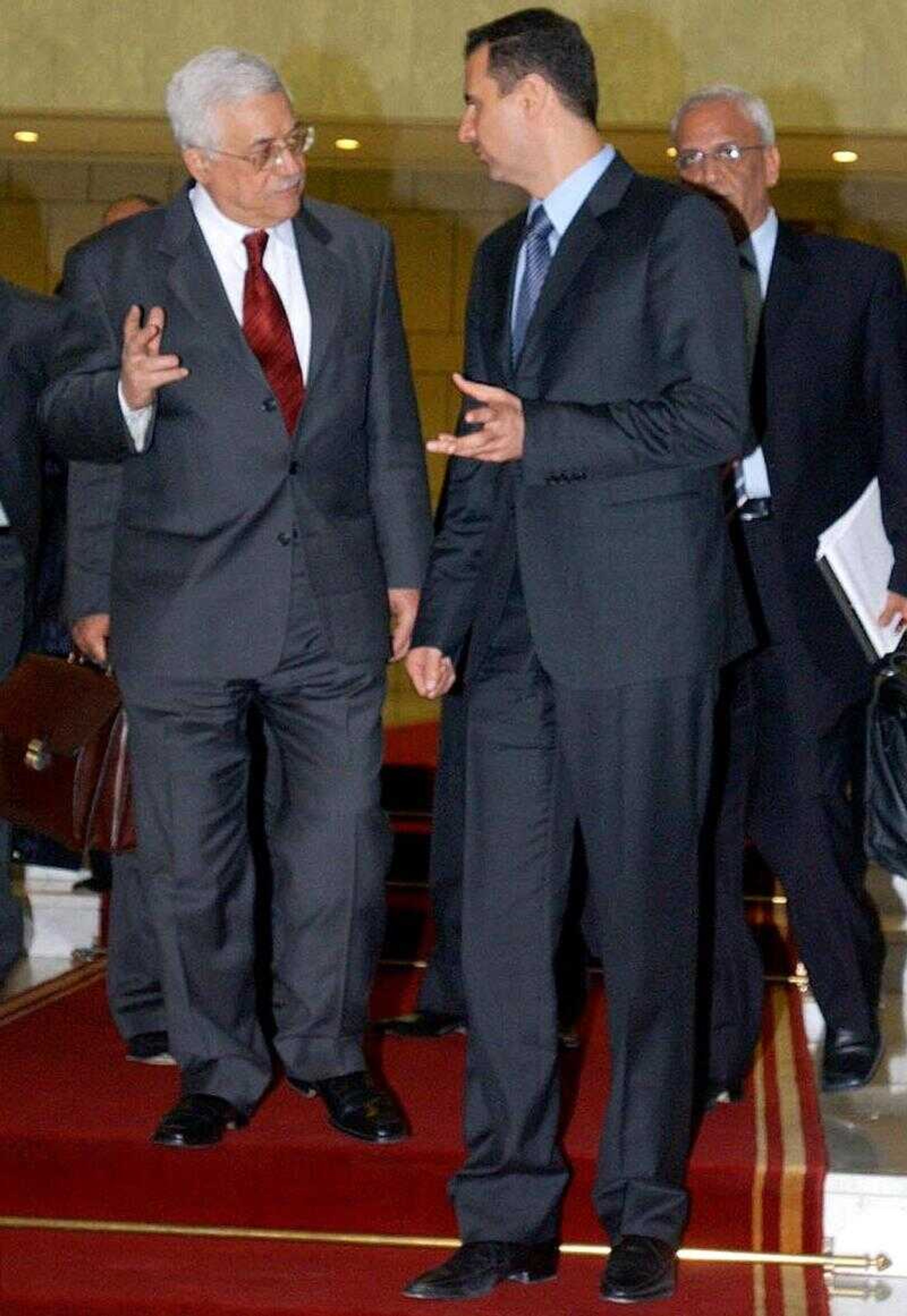Crucial talks on forming unity government for Palestinians postponed
DAMASCUS, Syria -- Crucial talks planned Saturday between Palestinian President Mahmoud Abbas and Hamas' exiled leader on forming a unity government were postponed, a senior member of a Palestinian faction said. The official, who spoke on condition of anonymity because of the sensitivity of the matter, said the Saturday meeting between Abbas and Khaled Mashaal had been canceled...
~ Abbas has threatened to call early elections if the two sides can't agree on forming the government.
DAMASCUS, Syria -- Crucial talks planned Saturday between Palestinian President Mahmoud Abbas and Hamas' exiled leader on forming a unity government were postponed, a senior member of a Palestinian faction said.
The official, who spoke on condition of anonymity because of the sensitivity of the matter, said the Saturday meeting between Abbas and Khaled Mashaal had been canceled.
"There are difficulties facing such a meeting and there are current mediations to try and resolve the problems," he added, without elaborating. He said it was possible there would be a meeting today.
There had been hopes that the meeting -- the first between Abbas and Mashaal since July 2005 -- could end the yearlong deadlock between the militant Hamas, which controls the Palestinian parliament and Cabinet, and Abbas' more moderate Fatah.
With the two sides unable to agree, tensions have repeatedly exploded into open warfare in the Gaza Strip -- a traditional Hamas stronghold -- that has claimed the lives of at least 62 people.
Coalition government
But disputes still remain on the toughest issues -- control of the two factions' powerful security forces and Hamas' refusal to recognize Israel's right to exist.
Late Saturday, Abbas' aide Saeb Erekat refused to confirm there would be meeting.
"The purpose of this visit is for President Abbas to meet with President [Bashar] Assad, though I'm not excluding the possibility of President Abbas meeting with Mr. Mashaal and other Palestinian leaders in Damascus," he told reporters.
Abbas has threatened to call early elections if the two sides failed to agree on forming a national unity government.
Since Hamas won election last year, Israel and Western countries have imposed an economic boycott on the Palestinian Authority, demanding that the militant Islamic group renounce violence and recognize Israel's right to exist. Hamas has refused.
Abbas has been pushing Hamas for months to form a coalition government of independent experts, in hopes of ending the sanctions which have pushed Palestinians deeper into poverty.
Abbas came to Damascus bolstered by Israel's release to him Friday of $100 million in taxes Israel had collected on behalf of the Palestinian government.
Following Hamas' election victory, Israel froze the funds. It later said the money would be routed to Abbas instead of the Hamas-controlled finance ministry, for humanitarian purposes and to strengthen Abbas' security forces which are on the front lines against Hamas.
Syria's influence
Abbas met earlier Saturday with Syrian President Bashar Assad.
Palestinian legislator, Nabil Amr, who attended the meeting, later told reporters that the Syrian leader expressed readiness to support all "efforts aimed at achieving Palestinian unity."
Syria's official news agency SANA said Assad stressed the "necessity for the Palestinian people at this critical stage to reject internal fighting and strengthen their national unity." He said he supported all what the Palestinian factions agreed on and was ready to help in this regard, it added.
Syria hosts the exiled leadership of a number of Palestinian militant groups and could exert considerable influence over Hamas. Mashaal relocated to Syria from Jordan after an Israeli assassination attempt in 1997.
Abbas and Mashaal's frosty relationship worsened in April after Mashaal publicly accused Abbas of being a traitor for opposing the formation of a heavily armed Hamas militia.
For months, Abbas shunned all contact with the Hamas leader, and only recently agreed to take a phone call from him.
Connect with the Southeast Missourian Newsroom:
For corrections to this story or other insights for the editor, click here. To submit a letter to the editor, click here. To learn about the Southeast Missourian’s AI Policy, click here.










